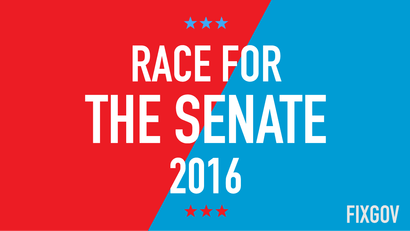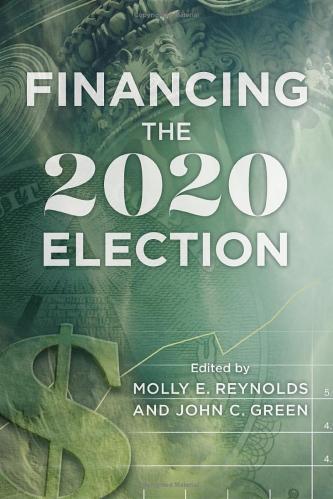Barbara Norrander is a Professor at the School of Government and Public Policy at the University of Arizona.
The 2016 Arizona senate race pits long-term incumbent Republican senator John McCain against Democratic congresswoman Ann Kirkpatrick. McCain is well known in the state, having served in the U.S. Senate since 1987. Yet, McCain is not conservative enough for some factions of the Republican Party, resulting in challenges from the right in his two most recent bids for re-nomination. Still, McCain does well with the broader electorate in the fall election. Congresswoman Kirkpatrick represents a sprawling, mostly rural district, making her a less well known quantity. She hopes that McCain’s potential problems with the Republican base along with an attack on McCain’s longevity in Congress will lead Arizonans to vote for a change.
What are the three most important issues on the campaign trail in your state?
In many ways, the 2016 Arizona senate election is replaying the 2010 election with a major focus on the Affordable Care Act. Surprisingly, immigration and a border wall with Mexico have not been prominent in the senate contest. Other issues occasionally come up, but mostly the race has been fought over candidate qualities, such as whether McCain has been in Washington too long or Kirkpatrick is too liberal for Arizona.
How have the candidates handled these issues and which candidate has been the strongest?
McCain’s advertisements continually link Kirkpatrick to Obamacare. In Republican-leaning Arizona, Obamacare has never been a popular policy. This is aggravated by recent news reports that 14 out of 15 Arizona counties will have only one insurance provider on the exchange in 2017. Immigration and border issues have not dominated because both candidates agree on the need for comprehensive immigration reform. The two disagree on the details and blame the other party for the lack of such a reform. McCain points to his endorsement from the National Border Patrol union to demonstrate his support for border security.
Much of the campaign has been devoted to whether McCain’s bid for a sixth senate term is an asset or a drawback. Kirkpatrick paints McCain as having lost touch with the state and calls for term limits. She touts her family’s long history in Arizona in her ads, and her campaign logo includes a pair of cowboy boots. McCain highlights the advantages of long-term incumbency by reminding voters of his constituency services, such as protecting military bases in the state and helping veterans obtain their benefits.
Who are the key interest and demographic groups in your state that have the power to influence the outcome of the election?
Geography matters in Arizona. Two-thirds of the population lives in the Phoenix metropolitan area. This makes it difficult for candidates from smaller cities and even Tucson to make headway in a statewide race. Ann Kirkpatrick is from Flagstaff, a Democratic enclave in northern Arizona. This makes her much less known in Phoenix. Furthermore, the Phoenix suburbs lean heavily toward the Republican Party.
Latinos are 22 percent of the potential electorate, but in the 2012 election represented only 17 percent of the voters. A statewide effort under the umbrella of One Arizona met their initial goal of registering 75,000 new Latino voters and upped the figure to 125,000. A higher turnout among Latinos would help Democratic candidates, but probably not as much in the senate race as in the presidential contest. According to a Latino Decisions poll from August 2016, Latinos in Arizona were evenly split in their opinions about McCain with 46 percent having a favorable opinion and 45 percent an unfavorable opinion. Kirkpatrick was viewed as favorably as McCain, at 47 percent, but 31 percent of Latinos were unable to rate her. Both candidates are running Spanish-language ads.
How have outside surrogates, SuperPACs, or other outside spending played a role in the race?
The general election contest has seen little interest from outside groups. As an indicator that the general election race is not viewed as competitive, the Democratic Senatorial Campaign Committee and the National Republican Senatorial Committee combined have spent less than $50,000 on the Arizona race. More outside spending was prevalent in the Republican primary contest between former state senator Kelli Ward and McCain, where the outside groups’ $7 million matched the total spent by the candidates. Still, McCain won a majority of the primary vote, besting Ward by 12 percentage points.
National media attention to this Senate race has been substantial. What important aspects have the media overlooked that may surprise outside observers on Election Day?
One factor that may be overlooked by the media is the nature of mail-in ballots in Arizona. In 2016, two-thirds of Arizonans will vote by mail, as 2.3 million ballots have been sent out (in a state with 3.5 million registered voters). Most of these mail ballots go to voters on a permanent absentee ballot roster. Thus, requests for early ballots won’t be a harbinger of voter sentiments, such as overall voter enthusiasm or support for a specific candidate. Additionally, having automatically received a ballot in the mail, Arizonans with tepid or mixed feelings about the presidential or senate candidates may still vote. The voice of these reluctant voters could determine the outcome of Arizona’s senate race.
How has the presidential race influenced the senate race in your state?
The big question is whether McCain’s changing positions on Trump will help him more than hurt him. McCain continued to provide lukewarm support for Trump until after the videotape of Trump’s misogynistic comments came out (and coincidentally after Arizona’s August 30 primary). Trump has considerable support among Republicans in Arizona, indicated by his winning the presidential primary. In addition, more conservative Republicans in Arizona have distrusted McCain in the past. McCain could falter in the Senate race if both Trump supporters and conservative Republicans opt not to vote for him. Whether McCain can replace this lost support with greater backing from more moderate Republicans and Republican-leaning independents remains an unanswered question. Kirkpatrick certainly hopes to limit McCain’s appeal among these voters. Kirkpatrick who previously attacked McCain for his support of Trump is now simply rewriting her more recent ads to ask McCain “what took so long?”
The Brookings Institution is committed to quality, independence, and impact.
We are supported by a diverse array of funders. In line with our values and policies, each Brookings publication represents the sole views of its author(s).












Commentary
Race for the Senate 2016: Key issues in Arizona
October 24, 2016